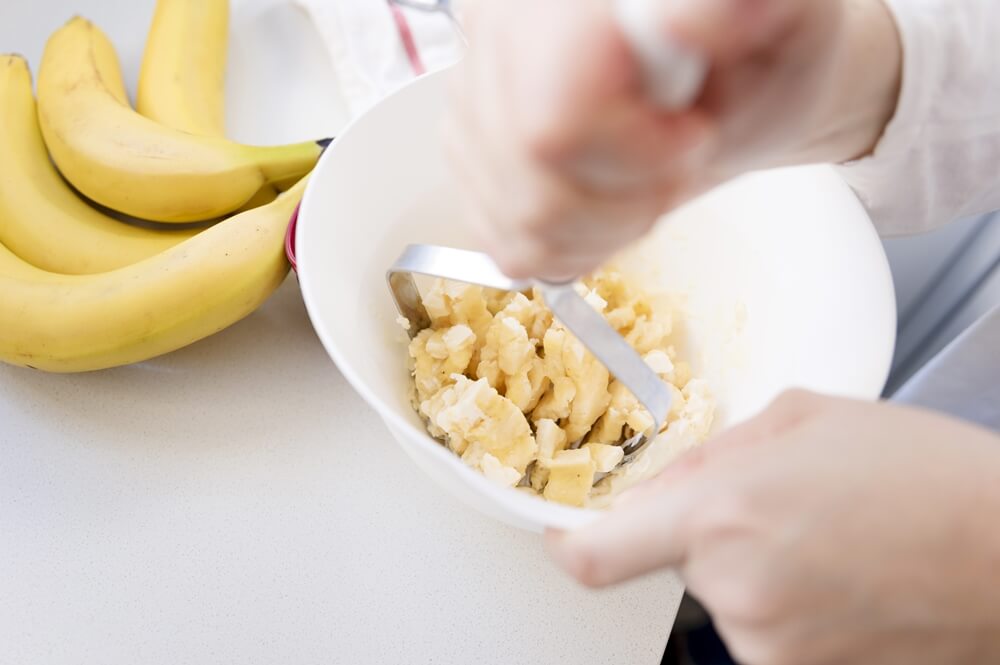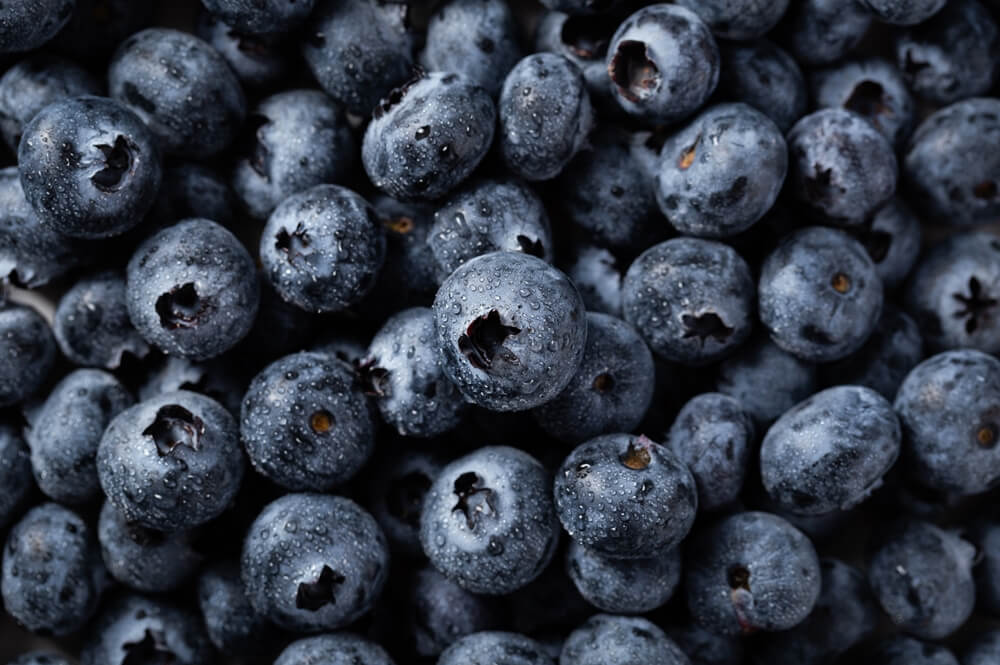Disclaimer: Please note that the information provided in this blog is for informational purposes only and should not be considered as a substitute for professional veterinary advice or diagnosis. While we strive to provide accurate and up-to-date information, it's essential to consult with your veterinarian or a qualified animal healthcare professional before making any decisions regarding your pet's diet or health. Every dog is unique, and individual factors such as age, breed, health status, and dietary sensitivities may impact their nutritional needs and tolerance to certain foods.
As a dog owner, you may find yourself pondering what human foods are safe to share with your furry friend. Among the various fruits and snacks, bananas often catch the eye with their appealing taste and nutritional benefits.
But the question remains: Can dogs eat bananas safely? Keep reading to learn more about the nutritional value of bananas, explore the potential benefits and risks for dogs, and offer practical tips on incorporating this fruit into your pet's diet.
Nutritional Value of Bananas
Bananas are not only delicious but also pack a punch in terms of nutrition, making them a wholesome addition to your dog's diet. This tropical fruit is rich in essential vitamins, minerals, and dietary fibre, making it a beneficial treat option for your furry companion.

Potassium: Bananas are renowned for their high potassium content, a crucial mineral that plays a vital role in maintaining proper heart function, muscle contraction, and nerve transmission in dogs. Potassium helps regulate fluid balance within the body and supports overall cardiovascular health.
Vitamin C: Another noteworthy nutrient found in bananas is vitamin C, an antioxidant that helps boost the immune system and promotes healthy skin and coat in dogs. Vitamin C also aids in collagen formation, which is essential for maintaining the integrity of connective tissues and joints.
Vitamin B6: Bananas contain significant levels of vitamin B6, also known as pyridoxine, which plays a vital role in carbohydrate metabolism, neurotransmitter synthesis, and red blood cell production. Vitamin B6 supports energy metabolism and helps regulate hormone activity, contributing to your dog's overall vitality and well-being.
Dietary Fibre: Including both soluble and insoluble fibre, which aids in promoting healthy digestion and regular bowel movements in dogs. Fibre helps bulk up stool and facilitates the passage of food through the digestive tract, reducing the risk of constipation and promoting gastrointestinal health.
Antioxidants: Bananas contain various antioxidants, such as flavonoids and phenolic compounds, which help neutralize harmful free radicals and reduce oxidative stress in the body. Antioxidants play a crucial role in combating inflammation, supporting cellular health, and reducing the risk of chronic diseases in dogs.
Can Dogs Eat Bananas?
In short, yes! Dogs can indeed eat bananas in moderation. While dogs are primarily carnivores, they can benefit from occasional fruit consumption as part of a balanced diet. Bananas offer a nutritious treat option for dogs, providing essential nutrients and a naturally sweet flavour that many dogs find appealing.
However, it's essential to exercise caution and moderation when introducing bananas to your dog's diet, as excessive consumption may lead to digestive issues.
Risks and Considerations
While bananas are generally safe for dogs, there are some risks and considerations to keep in mind to ensure your pet's safety and well-being.

Choking Hazard:
One potential risk associated with feeding bananas to dogs is the possibility of choking, especially if large chunks of banana are given to small dogs or puppies. Dogs may gulp down large pieces without properly chewing, leading to obstruction of the airway or digestive tract. To mitigate this risk, it's advisable to slice or mash bananas into smaller, bite-sized pieces before offering them to your dog. This reduces the likelihood of choking and ensures safer consumption.
Digestive Upset:
While bananas are rich in fibre, which can aid in digestion, feeding them in excessive amounts may lead to digestive upset in some dogs. Dogs that consume large quantities of bananas may experience symptoms such as diarrhoea, gas, or bloating. To prevent digestive issues, it's essential to introduce bananas gradually into your dog's diet and monitor their reaction. Start with small portions and observe how your dog responds before increasing the amount.
Allergic Reactions:
Although rare, some dogs may exhibit allergic reactions to bananas or develop sensitivities to certain components present in the fruit. Signs of allergic reactions in dogs may include itching, redness, swelling, or gastrointestinal distress. If you notice any adverse reactions after feeding your dog bananas, discontinue the treat and consult your veterinarian for further guidance. Your vet can help determine whether your dog is allergic to bananas or if there may be other underlying causes for their reaction.
Moderation is Key:
As with any new food introduction, moderation is key when feeding bananas to dogs. While bananas can offer nutritional benefits, they should be treated as an occasional snack rather than a primary food source. Limit the amount of bananas you offer to your dog and ensure they are part of a balanced diet that meets your pet's nutritional needs. Incorporate a variety of other fruits and treats into your dog's diet to provide a diverse range of nutrients and flavours.
Consultation with Veterinarian:
Before making any significant changes to your dog's diet or introducing new foods, it's advisable to consult with your veterinarian. Your vet can provide personalized recommendations based on your dog's specific dietary requirements, health status, and any underlying medical conditions. They can offer valuable insights and guidance to ensure that feeding bananas to your dog is safe and appropriate for their individual needs.
Being mindful of the potential risks and considerations linked to feeding bananas to dogs enables you to take proactive measures to safeguard your pet's safety and well-being. Gradually introducing bananas, monitoring your dog's response, and consulting your veterinarian as necessary allow for the safe incorporation of this nutritious fruit into your dog's diet, thereby enhancing their overall health and happiness.
How to Feed Bananas to Dogs
To safely incorporate bananas into your dog's diet, follow these 4 simple guidelines:

- #1 Start with small portions: Introduce bananas gradually to assess your dog's tolerance and prevent digestive issues.
- #2 Remove the peel: While the banana peel is non-toxic, it can be challenging for dogs to digest and may pose a choking hazard.
- #3 Serve in moderation: Treat bananas as an occasional snack rather than a staple food in your dog's diet. A few slices or a tablespoon of mashed banana is sufficient for most dogs.
- #4 Consider freezing: Frozen banana slices can make a refreshing and chewy treat for dogs, especially during hot summer months.
Alternatives to Bananas
While bananas can be a healthy and tasty treat for many dogs, it's essential to have alternative options available, especially if your dog has an aversion to bananas or experiences adverse reactions. Fortunately, there are plenty of dog-friendly fruits and snacks that offer similar nutritional benefits without the risk of adverse reactions.
Apples: Apples are a crunchy and refreshing treat that many dogs enjoy. They are low in calories and high in fibre, making them an excellent choice for promoting dental health and aiding digestion. Remember to remove the seeds and core before offering apples to your dog, as these parts can be choking hazards.
Blueberries: Blueberries are packed with antioxidants and essential vitamins, making them a nutritious snack option for dogs. These small berries are low in calories and high in fibre, making them ideal for supporting digestive health and immune function. Serve them fresh or frozen as a tasty and wholesome treat.

Strawberries: Strawberries are another favourite among dogs, thanks to their naturally sweet flavour and juicy texture. They are rich in vitamin C, antioxidants, and dietary fibre, making them a nutritious addition to your dog's diet. Serve strawberries in moderation as an occasional treat to avoid overconsumption of sugar.
Watermelon: Watermelon is a hydrating and refreshing fruit that dogs can enjoy in moderation. It's low in calories and contains high water content, making it an excellent option for keeping your dog hydrated on hot summer days. Remove the seeds and rind before offering watermelon to your dog, as these parts can be difficult to digest.
When choosing alternative treats for your dog, consider their individual preferences, dietary requirements, and any existing health conditions. Please remember to consult with your veterinarian if you have any concerns or questions about suitable treats for your furry friend.
Final Thoughts,
Bananas can be a safe and nutritious addition to your dog's diet when fed in moderation. Packed with essential vitamins, minerals, and dietary fibre, bananas offer various health benefits for dogs, including improved digestion and heart health. However, it's very important to be mindful of potential risks such as choking hazards and digestive upset and to monitor your dog's reaction when introducing bananas or any new food.
By following the guidelines outlined in this quick guide, you can safely treat your dog to the occasional banana snack while promoting their overall health and well-being.
Have you ever fed bananas to your dog? Share your experiences and tips in the comments below!

